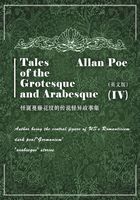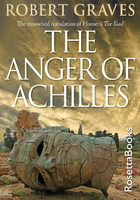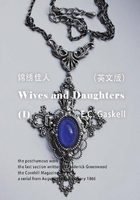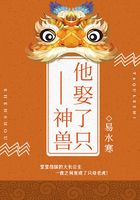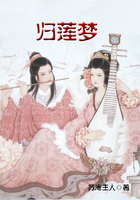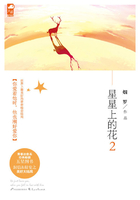Ideals of statehood
Since the destruction of the Second Temple by the Romans in AD 70, the Jews, who were dispersed all over the Roman Empire, had prayed for a return to Zion. 'Next year in Jerusalem' was—and remains—the hope expressed at the end of every Passover meal commemorating the ancient exodus from Egypt. For two millennia the dream of such a return seemed a fantasy. Everywhere Jews learned to adapt to the nations within whose borders they lived. Frequent expulsion to other lands made a new adaptation necessary, and this was done. But Zion, which had been under Muslim rule almost without interruption since the seventh century, and under the rule of the Ottoman Turks since the early sixteenth century, was possible only for a few.
The perils of the journey could be severe. Of 1,500 Jews who travelled from Poland, Hungary and Moravia to Palestine in 1700, as many as 500 died on the way. But the imperative to return physically from exile never entirely died. In 1777 more than 300 Hasidic Jewish families, upholders of ultra-Orthodox Judaism, made the journey from Poland to Palestine. In 1812 some 400 followers of the Vilna Gaon—one of the enlightened Jewish sages of his generation—made the journey from Lithuania.
By the middle of the nineteenth century about 10,000 Jews lived in Palestine. More than 8,000 of them lived in Jerusalem. A few hundred lived in the holy city of Safed, in the north, where several Jewish sages were buried, in the mountain village of Peki'in (which had a tradition of continuous Jewish settlement since Roman times) and in nearby Tiberias on the Sea of Galilee. In the coastal town of Acre lived 140 Jews, mostly pedlars and artisans, but many without any means of support. There were several hundred Jews in Jaffa.
Most of the Jews in Palestine were immigrants from Poland and Lithuania. Many of them survived on charity, sending regular begging letters back to their original communities in Europe, and even dispatching special emissaries to raise funds. But the attraction of Palestine was growing. In 1862 a German Jew, Moses Hess, an advocate of the Jewish return to Palestine, wrote in his book Rome and Jerusalem of how his Jewish 'nationality' was connected 'inseparably' with the Holy Land and the Eternal City. Hess added, 'Without a soil a man sinks to the status of a parasite, feeding on others.'
Eight years later in 1870 a French educator, Charles Netter, with the approval of the Turkish authorities, founded an agricultural school at Mikveh Israel (Hope of Israel). The name was taken from a description of God in the book of Jeremiah. Located a few miles inland from Jaffa, Mikveh Israel was a settlement to which Jews living in countries where they experienced various educational disabilities and restrictions—initially Persia, Roumania and Serbia—could come to live and study.
It was in 1876 that the British Christian writer George Eliot (a pseudonym for Mary Ann Evans) completed her novel Daniel Deronda. It was to make its impact on many Jews, among them two Russian Jews, Eliezer Ben-Yehuda and I. L. Peretz, both of whom were to exert considerable influence, through their own writings, on Jewish national aspirations. One passage in the novel was often quoted:
Revive the organic centre; let the unity of Israel which has made the growth and form of its religion be an outward reality. Looking towards a land and a polity, our dispersed people in all the ends of the earth may share the dignity of a national life which has a voice among the peoples of the East and the West—which will plant the wisdom and skill of our race so that it may be, as of old, a medium of transmission and understanding.
In 1878 a number of Jews from Jerusalem decided to establish a Jewish village in the Palestinian countryside. Their first effort was to buy some land near Jericho, but the Sultan refused to allow ownership to be transferred to Jews. They did manage to buy land from a Greek landowner in the coastal plain, and named their village Petah Tikvah (Gateway of Hope), but malaria, disappointing harvests, and quarrels among them led to failure. By 1882, when they abandoned the village, there were only ten houses and sixty-six inhabitants.
Also founded in 1878, by religious Jews from Safed who wanted to earn their own livelihood, and not be dependent on charity, was the village of Rosh Pinah. Lacking funds and experience, and frequently harassed by the Arabs from nearby villages, they gave up after two years, but Roumanian Jews, driven from Roumania by persecution and poverty, renewed the settlement in 1882, and obtained sufficient aid from the French Jewish philanthropist Baron Edmond de Rothschild to survive. Growing tobacco and planting mulberry trees for silkworms were two of their enterprises. Like so many of the Jewish settlements that were to be founded in Palestine, the name of Rosh Pinah was taken from a biblical phrase, in this case the 'head stone' from Psalm 118: 'The stone which the builders refused is become the head stone of the corner. This is the Lord's doing. It has become marvellous in our eyes.'
In Russia, following an upsurge of violent attacks against Jews—the pogroms—two movements were founded urging the emigration of Jews to Palestine to work as farmers on the Land of Israel (Eretz Yisrael) in order to 'redeem' it. One of the movements was known as the Bilu, from the Hebrew initials in the biblical phrase Beth Jacob Lechu Venelcha: 'O House of Jacob, come and let us go!' The young men and women of the Bilu, being secular and socialist in outlook, omitted the concluding words of the phrase: 'in the light of the Lord'.
The second Russian-born movement was Lovers of Zion (Hovevei Zion). It held its small founding conference in 1884, at Kattowitz, in German Upper Silesia, just across the border from Russian Poland. Its president, Odessa-born Judah Leib Pinsker (who had served as a physician in the Crimean War thirty years earlier, and been honoured by the Tsar) urged upon the thirty-six delegates present the importance of the 'return to the soil' of Palestine. But although both the Bilu and Hovevei Zion advocated emigration to Palestine and the building up of farms and villages there, the mass of disaffected Russian Jews went to the United States, others to Britain, Western Europe and South Africa, in search of greater social equality and the chance of less poverty-stricken lives.
Only a small percentage of Russian Jewish emigrants (never more than 2 per cent) went each year to Palestine. But even this small percentage meant that 25,000 Jews reached Palestine between 1882 and 1903. Known as the First Aliyah, from the Hebrew word for ascent, in Palestine many of them lived by tilling the soil and by recourse to the financial support of the Rothschild family, which had for several years encouraged the work of Jews on the land and in the vineyards which the Rothschilds owned. Some of the Bilu pioneers worked as hired labourers at the Mikveh Israel agricultural school. One of them was Vladimir Dubnow, who took the Hebrew name Ze'ev (Wolf). On 21 September 1882 he wrote to his brother Simon—later a distinguished historian who believed that the greatest contribution of the Jews would be in the Diaspora, and who was murdered by the Nazis when in his eighties:
Do you really think that my sole motivation in coming here is to better myself, with the implication that if all goes well I will have achieved this aim and that if it does not then I ought to be pitied? No. My ultimate aim, like that of many others, is greater, broader, incomprehensible but not unattainable. The final goal is eventually to gain control of Palestine and to restore to the Jewish people the political independence of which it has been deprived for two thousand years.
Don't laugh; this is no illusion. The means for realizing this goal is at hand: the founding of settlements in the country based on agriculture and crafts, the establishment and gradual expansion of all sorts of factories, in brief—to make an effort so that all the land, all the industry, will be in Jewish hands.
In addition, it is necessary to instruct young people and the future generation in the use of firearms (in free, wild Turkey anything can be done), and then—here I too am plunging into conjecture—then the glorious day will dawn of which Isaiah prophesied in his burning and poetic utterances. The Jews will proclaim in a loud voice and (if necessary) with arms in their hands that they are the masters of their ancient homeland. It doesn't matter whether that glorious day comes in another fifty years or more. Fifty years are but a moment for such an enterprise. Agree, my friend, that this is a sublime and magnificent idea.
Sixty-five and a half years were to pass before a Jewish State was established. At the time that Ze'ev Dubnow wrote his letter, there were scarcely 20,000 Jews in Palestine—one quarter of one per cent of world Jewry, and only one Jewish village. Dubnow himself was unable to settle in Palestine and returned to Russia after a few years, dying there more than forty years later. But slowly, with enormous difficulties, and yet with an incredible tenacity of purpose, the Jewish presence and Jewish enterprise in Palestine grew. In 1882 the town of Zichron Yaakov ('Memory of Jacob') was founded by Jewish immigrants from Roumania. It was financed by Baron Edmond de Rothschild, who named it after his father. That same year, 1882, a Gibraltar-born Jew, Hayyim Amzalak, who had emigrated to Palestine in 1830—at the age of six—and was later British vice-consul for Jaffa, bought the land on which the first all-Jewish village in Palestine, Petah Tikvah, had been built four years earlier. He gave it to Bilu pioneers from Russia who were willing to try to make it work. As a British subject, Amzalak could buy land; Russian-born Jews were not allowed to do so.
Petah Tikvah was not only cursed by malaria, it suffered frequent attacks from the neighbouring Arab villages. But the pioneers persevered, and Baron Edmond de Rothschild—'The Baron', as he was known—gave them the money needed to clear the malaria swamps which had defeated the first villagers.
Hayyim Amzalak also helped to finance the establishment of Rishon le-Zion (First to Zion), the first village to be built by settlers from outside Palestine—both Rosh Pinah and Petah Tikvah had been founded by local Jews from Safed and Jerusalem. Rishon le-Zion's settlers were ten pioneers from Russia. When funds began to run short and the water in the shallow wells had failed, an emissary from Rishon le-Zion travelled to Paris, where he persuaded Edmond de Rothschild to provide sufficient funds to dig a deep well. The Baron also sent out experts in agriculture and wine-growing. The Carmel Oriental wine cellars, which he established, produce commercially successful wine to this day. The first Hebrew-language kindergarten and elementary school in Palestine were opened in Rishon le-Zion within a few years of its foundation. Once more it was the Bible which had provided the inspiration for the village's name, the phrase in the Book of Isaiah: 'The first shall say to Zion…'
In honour of the founding of the town, a Roumanian-Jewish poet, Naphtali Herz Imber, wrote a poem, Hatikvah (The Hope), which was to become the Zionist hymn, and later the State of Israel's national anthem. Imber read the poem to the farmers of Rishon le-Zion, one of whom, Samuel Cohen, who had emigrated from Moldavia four years earlier, set it to music. The poem read:
As long as deep in the heart
The soul of a Jew yearns,
And towards the East
An eye looks to Zion
Our hope is not yet lost
The age-old hope,
To return to the land of our fathers
To the city where David dwelt.
Within a few years, the second verse was changed to the version now in use:
Our hope is not yet lost
The hope of two thousand years,
To be a free people in our land
The land of Zion and Jerusalem.
In 1883 a Jewish immigrant from Russia, Reuben Lehrer, built a house in an Arab village, Wadi Hanin, in the coastal plain. Several other Jews, among them a fellow immigrant from Russia, Avraham Yalofsky, soon joined him. Until the War of Independence in 1948, Jews and Arabs lived peacefully side by side in the village. Lehrer called it Nes Ziona (Banner towards Zion). He and his friends planted citrus groves and engaged in bee-keeping. But an omen of the dangers that lay ahead for Jewish settlement in Palestine came only five years after the start of Jewish life in the village, when, in a nearby wadi, a group of Arabs—not from the village—ambushed Yalofsky and killed him.
Despite the hazards of life imposed by nature, and by man, each year saw some new effort at Jewish settlement. In 1884 a Russian-born Jew, Yehiel Michael Pines, the representative in Palestine of the newly established Moses Montefiore Testimonial Fund (a Russian-based charitable fund, chaired by Judah Leib Pinsker, whose purpose was to support Jewish agricultural work in Palestine) bought, through the fund, the land needed for the Bilu pioneers to found another village, Gederah. The principal produce of their fields was to be grapes and grain.
Agriculture was also the chosen pursuit of the Lovers of Zion pioneers. Through it they believed they could 'redeem' the land and restore the Jews as a people. When a Russian-Jewish professor, Hermann Schapira, himself one of the founders of Lovers of Zion, proposed establishing a Jewish university in Jerusalem, he was challenged by Menachem Ussishkin, one of the young leaders of the movement, who declared that nobody but a visionary could think of a university in Palestine at that time: 'First and foremost we desire to create a farmer class in the Land of Israel, whose sons would not be "huge heads on chicken's feet" but ordinary people tilling the soil.'
The sense of nationality which was emerging among the Jews in Palestine received a boost in 1889, when a Russian-born Jew, Eliezer Ben-Yehuda, and a small number of like-minded friends, including Yehiel Pines, formed a group with the declared object of 'spreading the Hebrew language and speech among people in all walks of life'. A year later the group elected a committee which set about establishing Hebrew terms for modern words which were in daily use, and creating a uniform system of pronunciation—as every emigrant homeland had a different pronunciation, mostly derived from 2,000 years of evolving liturgical prayer, this was no easy task.
Ben-Yehuda drafted the committee's statement of purpose: 'To prepare the Hebrew language for use as a spoken language in all facets of life—in the home, school, public life, business, industry, fine arts, and in the sciences… To preserve the Oriental qualities of the language and its distinctive form, in the pronunciation of the consonants, in word structure and in style, and to add the flexibility necessary to enable it fully to express contemporary human thought.' This Sephardi pronunciation of Hebrew, which Ben-Yehuda favoured, was believed to be closer to the biblical tongue; the Ashkenazi pronunciation, with which he had been brought up in Russia, had changed over time, and by the impact of Yiddish, into something that he regarded as less mellifluous, and less 'genuine'.
There was a considerable element of excitement and ingenuity in the language committee's work. Ancient Hebrew roots were given modern forms. Arabic roots were also used. Non-Semitic words which had a Hebrew form were also incorporated. When, in 1890, a group of Lovers of Zion established a small farming settlement in Upper Galilee, on the west bank of the River Jordan, they gave it the Hebrew name Mishmar Ha-Yarden (Guard of the Jordan).
It was not only the Jews from Russia who were striving to introduce Hebrew as a spoken language. Several of the religious communities of Jews from Arab lands did likewise. Among them were several thousand Jews from the Yemen, one of whose leaders, Shalom ben Joseph Alsheikh, who emigrated to Jerusalem in 1891, was a leading educationalist in his community (and from 1908 until his death in 1944, at the age of eighty-five, chief rabbi of the Yemenite community of Jerusalem).
The Jewish population of Jerusalem grew considerably through immigration; Jews had been a majority there since the 1850s, and between 1864 and 1889 their numbers multiplied three-fold, reaching 25,000. There were then 14,000 Arabs in the city.
Among those who moved from Jerusalem to the growing number of Jewish villages and settlements was Abraham Shapira. He had been born in Russia in 1870 and was brought to Palestine by his parents when he was ten. When, in 1890, he moved to Petah Tikvah, he found that Arab farmers were pasturing their flocks on the Jewish fields, damaging the crops. Shapira set up a guardsmen's group which drove off the intruders and maintained the security of the village, enlisting the help of local Bedouin as well as of young Jewish settlers.
In 1890 another Jewish village was founded in the coastal plain. This was Rehovot (Wide Expanses; taken from the Book of Genesis). The land was bought from a wealthy Christian Arab landowner. The impetus of the founders was to establish a Jewish village that would not be dependent on the financial goodwill—and administrative supervision—of Edmond de Rothschild. After a decade of effort, and frequent attacks from the neighbouring Arab villages in which blows would be struck, property damaged and trees cut down, success came and the village grew, helped by the arrival of Jewish immigrants from Yemen.
Russian Jews, members of the Lovers of Zion who had emigrated from Vilna, Riga and Kovno, founded their own village in 1890. They called it by the Arabic name, Hadera (The Green), after the emerald green colour of the swamp vegetation around them. They could not have chosen a less hospitable site. It was not the local Arabs who tormented them, but the malarial mosquito. More than half of the inhabitants of Hadera died of malaria in the first twenty years of its existence. But with Egyptian drainage workers sent to them by Baron Edmond de Rothschild, and the planting of eucalyptus groves, they gradually drained the soil and were able to turn from field and vegetable-garden crops to citrus fruits.
***
The nineteenth century was coming to an end with considerable Jewish activity in Palestine. But among the sophisticated and assimilated Jews in Europe little was known of this. Palestinian Jewry was seen, wrongly, as an exclusively religious community, set in the ways of late medieval Judaism, black-garbed and clinging to piety and prayer in preference to manual labour and productive enterprise. One of those who had little knowledge of what had already been achieved in Palestine, especially by the Russian immigrants of the previous two decades, was a Hungarian-born Jew, Theodor Herzl. As a journalist in Paris since 1891, he was shocked by the anti-Semitism in France at the time of the Dreyfus case, when a Jewish officer was found guilty of treason, a charge later found to have been false. The harsh anti-Semitic tone of much of the criticism of Dreyfus appalled Herzl who also knew of the suffering of Jews in Russia. His calls for a return to Zion appealed above all to the Jews of Russia, for hundreds of thousands of whom the United States had hitherto been the main possible place of refuge and renewal.
The Dreyfus trial was a watershed in Jewish history. Jews everywhere asked themselves what had gone wrong with Jewish life. Why was there anti-Semitism? Three ways out of the trap seemed to present themselves: to become assimilated into the nation with whom one was living, to fight for a revolutionary socialism that would cure all the evils of the world including anti-Semitism, or to seek a 'normal' Jewish life in a Jewish land with a Jewish government. Herzl was drawn to the last option.
In Vienna, where Herzl had lived since he was eighteen, the election of Karl Lueger as mayor in 1893 was another catalyst. Lueger was head of a self-proclaimed anti-Semitic political party and won many of his votes by denouncing the Jews. In the month that Lueger triumphed electorally in Vienna, Herzl noted in his diary, 'The mood among the Jews is one of despair.' Herzl was convinced, however, that he could persuade both Jews and Gentiles to support the idea of a Jewish State in Palestine. He made contact with the Sultan of Turkey, sought to influence the German Kaiser and pressed his arguments vigorously with the leading Jews of Western Europe.
Some of those to whom Herzl expounded his ideas considered him insane. The first Rothschild whom he approached ignored his letter. But he found a much respected ally in the physician and philosopher, Max Nordau—at that time also a Jewish newspaper correspondent living in Paris—who told him, 'If you are insane, we are insane together. Count on me!' Nordau, like Herzl, had been born in Hungary. He was well known as a lifelong opponent of aristocratic corruption and monarchical oppression. In a much publicized book, The Conventional Lies of our Civilization, written in 1884 when he was thirty-five, he had condemned both contemporary society and hatred of Jews, which he portrayed as a symptom of national degeneration.
Herzl was in his mid-thirties when, without having been to Palestine, he espoused the idea of a Jewish nation there, and began to drive the idea forward. He launched a movement aimed at something more than the existing spasmodic settlement on the land of small groups of Jews, mostly from Tsarist Russia. His aim was the immediate return of the Jews to Palestine on a massive scale, from every one of the countries of the Diaspora, to land which would be theirs as a Jewish homeland, recognized as such by the Great Powers of the world.
Herzl's vehicle was an organization that he founded in 1896, the World Zionist Organization. The term Zionism had been coined four years earlier. Like many of the 'isms' of the time, it appealed to those who sought a more ideal society, and one which they could direct themselves in the interest of their group. Nationalism was gaining in strength in many lands. In the Austro-Hungarian Empire, which Herzl knew well, Czechs, Slovaks, Ruthenians, Slovenes and Croats were among those minority groups hoping for national self-determination. Zionism proposed a national identity and a national home for the Jews. Herzl had the idea of opening negotiations with the Ottoman government to secure the land needed, and to build up a modern society in what he called the 'old-new' land.
Herzl's endeavours reached a culmination in February 1896 when he published a book entitled The Jewish State. In it he declared bluntly, 'Palestine is our ever-memorable historic home. The very name of Palestine would attract our people with a force of marvellous potency.'
The Jewish State was a major influence in the emergence of political Zionism. Herzl pointed to the part played by anti-Semitism in bringing the Jews to their existing desperate situation. 'We have honestly endeavoured', he wrote, 'to merge ourselves in the social life of surrounding communities and to preserve only the faith of our fathers. We are not permitted to do so. In vain we are loyal patriots.' It was the distress of the Jews, he believed, that bound them together. 'Thus united, we suddenly discovered our strength. Yes, we are strong enough to form a State, and, indeed, a model State. We possess all human and material resources necessary for the purpose.'
Herzl described some of the detailed work needed to set up a State in Palestine. Much of the book dealt with specific details of emigration, land purchase, house-building, labour laws, the proposed nature of manual work, the commerce, industry, education, welfare, and social life of the new State. It was to be a model society, ever developing and expanding, moulded in the image of European democracy but with Jewish values as its foundation. It was to be secular, not religious; bound by laws that derived from the European civil codes, guided by the European—and American—example of the separation of Church and State, looking forward to the twentieth century, not backward to the middle ages.
The Jews would not live in a ghetto in the new State, cut off from the modern, secular and scientific influences and challenges around them, but would, after so many centuries of isolation and even obscurantism, emerge into the world of modernity. The State would be a testimony to enlightenment and emancipation: it would witness the birth of the modern Jew in a Jewish land. Jews who lived in existing poor, backward societies, far from the modernity represented by Vienna or New York or London, would have the opportunity to put their dismal circumstances behind them.
Once the Jews were 'fixed in their own land', Herzl wrote, it would no longer be possible to scatter them all over the world. 'The Diaspora cannot take place again,' he added, 'unless the civilization of the whole earth shall collapse,' and he went on to proclaim, 'Here it is, fellow Jews! Neither fable nor deception! Every man may test its reality for himself, for every man will carry over with him a portion of the Promised Land—one in his head, another in his arms, another in his acquired possessions. But we must first bring enlightenment to men's minds. The idea must make its way into the most distant, miserable holes where our people dwell. They will awaken from gloomy brooding, for into their lives will come a new significance.'
Referring to those Jews, led by Judas Maccabeus, who had overthrown the rulers of Palestine in the pre-Roman era, Herzl wrote in his closing sentences, 'The Maccabeans will rise again. We shall live at last as free men on our own soil, and die peacefully in our own homes.'
Herzl did not stop his efforts with the publication of his book. Indeed, in the following months he pressed his point home in every quarter. In June 1896 he went by train to Constantinople. Stopping briefly in the Bulgarian capital, Sofia, he was welcomed by the local Jews with calls of 'Next Year in Jerusalem'. In Constantinople, however, the Turks would not give him any assurances about Palestine. In London that July, thousands of Jews came to hear him speak. Most of them were new immigrants from Russia, poor and eager for inspiration. In Paris six days later he was received by Baron Edmond de Rothschild, but the baron warned him against upsetting the Turks. Rebuffed, but not in any way defeated, Herzl wrote to a friend, 'There is only one reply to this situation. Let us organize our masses immediately.' The masses that mattered were the Jews of Russia—more than four million, the victims of political discrimination, economic pressures and physical attack. That November Herzl wrote to the Grand Duke Vladimir of Russia, an uncle of the Tsar, seeking to enlist imperial Russian support in what he described as 'the solution to a question as old as Christianity, a great and beautiful cause, designed to delight the noblest hearts. It is the return of the Jews to Palestine!' The Grand Duke was non-committal.
***
The ferment of anticipation stirred up among the Jews of Europe by Herzl's book elevated its contents from a mere theoretical tract to a call for debate and a blueprint for action. But it did not meet with universal Jewish approval; far from it. For most Orthodox Jews, Herzl's predominantly secular vision was disturbing; the return of the Jews to the Land of Israel (Eretz Yisrael) would only come after the arrival of the Messiah, and could not be brought forward by the efforts of mere mortals. Many secular Jews, for whom the peaceful future of their race lay in the peace and prosperity of the lands in which they already lived, were opposed to the idea of a separate Jewish State. On 18 March 1897 Herzl recorded in his diary a meeting with the Chief Rabbi of Vienna, Moritz Güdemann, who argued that the 'mission of Jewry' consisted, in future years as hitherto, 'in being dispersed throughout the world'.
Herzl was also opposed at first by those—mostly Russian—Jews for whom the fragmentary process of piecemeal settlement in Palestine was the key. They had looked for more than a decade to the slow, steady, farm by farm, settlement by settlement, building up of agricultural activity, with the aim of redeeming the Jewish soil by hard work and devoted individual effort. It was to this process that they had dedicated their energies and skills. Each step, each village was for them a triumph, as when, in 1896, Baron Edmond de Rothschild made it possible for a group of young settlers to establish what was to be the northernmost Jewish village in Palestine (and later the northernmost town in Israel), Metulla. The founders were chosen for their ability to defend the site as much as to farm it. They took the name from the local Arabic name for the site.
Herzl's call for Jewish statehood seemed too grandiose, too fraught with the complications of local Turkish and Arab opposition, too ambitious with regard to the accepted place of the Jew in the world, to be more than an extraordinary dream, an eccentricity. The work on settlements continued along its piecemeal, difficult but constructive path. One climax of these efforts was the finance provided in 1896 by the Jewish philanthropist Baron Maurice de Hirsch, through his Jewish Colonization Association (known as ICA). This enabled several colonies in Palestine to receive extra and essential financial help, among them Hadera and Mishmar Ha-Yarden.
De Hirsch's Jewish Colonization Association also financed the settlement of Russian and Roumanian Jews in Argentina, Brazil, the United States, Canada and Cyprus. This aspect of de Hirsch's philanthropy was not to the liking of Herzl and his followers, for whom Palestine alone was the intended focus of all Zionist efforts.
Herzl's ambitious proposal for full, and rapid, statehood was a vision that even many Russian-Jewish Zionists found difficult to accept. One of the leaders of the Lovers of Zion, Asher Ginsburg—known by the Hebrew name Ahad Ha'Am (One of the People)—was convinced that the real need was not for a Jewish political centre, but for a centre of spiritual regeneration. Ahad Ha'Am did not expect to see even the spiritual centre come into being for many years. On 29 July 1897 he wrote to a friend, 'I am already held by many to be a pessimist who sees and prophesies nothing but evil; so what good would come of what I have to say?'
Unlike Ahad Ha'Am, Herzl was an optimist, and he persevered with his efforts, making contact with Jews all over the world, and enlisting their support for his World Zionist Organization, committed to creating a Jewish State in Palestine. He was particularly energetic in persuading the Lovers of Zion, with their more modest aims of settlement in Palestine without sovereignty, not to reject his vision out of hand. On the morning of Sunday 29 August 1897, five months after the Chief Rabbi of Vienna had told him that the role of the Jew was as a catalyst in the lands of the Diaspora, Herzl opened the First Zionist Congress, in the Swiss city of Basle. This was the opening gathering of the World Zionist Organization, attended by more than 200 delegates, at least a quarter of whom were from Russia.
The scepticism of the Lovers of Zion towards the new movement had been overcome. Even Ahad Ha'Am, although not an official delegate, was present at the Congress and agreed to take part in the official photograph. Among the Jews who came to Basle that August were those from Palestine, from Arab lands, from Britain, and even from New York. American Zionism was represented by Rosa Sonnenschein, the editor of the American Jewess. In all, Jews from twenty-four different States and territories had gathered together.
Herzl, as President of the Congress, told the delegates, 'We have an important task before us. We have met here to lay the foundation-stone of the house that will some day shelter the Jewish people.' It was not to be a secretive or chance affair, he explained. And it was to be achieved by acting in the same manner as all aspiring national movements. 'We have to aim', Herzl insisted, 'at securing legal, international guarantees for our work.'
The delegates must not disperse once their deliberations were over, Herzl told them, but must continue to work without pause in search of their aim. 'At this Congress', he declared, 'we bring to the Jewish people an organization it did not possess before.' This organization, the Zionist movement, would enable an outcast people to act with dignity. The Jews were no longer, as they had in the previous decades, to 'steal into the land of their future'. Instead, they would negotiate their return openly, by a legal agreement with the Ottoman government, and with the formal approval of the Great Powers. That agreement, Herzl insisted, 'must be based on rights and not on toleration'. Once the negotiations were completed, he envisaged not the existing pace of piecemeal settlement—which he called derisively 'infiltration'—but 'the settlement of Jewish masses on a large scale'.
Herzl also spoke of the ethical aspect of a Jewish homeland. Zionism, he said, was 'a civilized, law-abiding, humane movement towards the ancient good of our people'. This theme was taken up by Max Nordau who stressed the material and moral misery of the Jews in the Diaspora. In eastern Europe, North Africa and Asia, where as many as nine-tenths of world Jewry were living, 'the misery of the Jews is to be understood literally. It is a daily distress of the body, anxious for every day that follows, a tortured fight for bare existence.'
Nordau drafted for the Zionist Congress a document called the Basle Programme. This began with the sentence, 'The task of Zionism is to secure for the Jewish people in Palestine a publicly recognized, legally secured homeland.' To fulfil this task, the Congress approved four specific tasks. The first was to 'encourage the systematic settlement of Palestine with Jewish agricultural workers, labourers and artisans'. The World Zionist Organization would 'organize and unite the Jewish people by the creation of groups in various countries whose object would be to foster the aims of the movement'. These groups were to be organized in accordance 'with the laws of their respective countries'. The Congress would also 'dedicate itself to strengthening Jewish consciousness and national feeling'. Finally, it would 'organize political efforts so as to obtain the support of the various Governments of the world for the aims of Zionism'.
This was a comprehensive and ambitious set of aims. Herzl was elated that they had all been endorsed. On 3 September 1897 he wrote in his diary, 'Were I to sum up the Basle Congress in a word—which I shall guard against pronouncing publicly—it would be this: At Basle I founded the Jewish State. If I said this out loud today, I would be answered by universal laughter. Perhaps in five years, and certainly in fifty, everyone will know it.'

